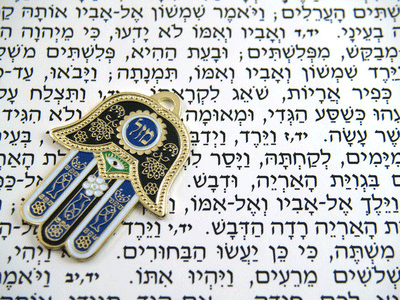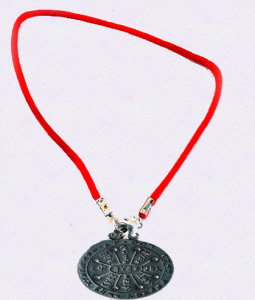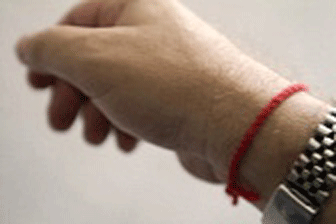Kabbalah (Jewish Mysticism)
Written by Zev on April 14, 2011 – 12:53 pm -
In Judaism the word Kabbalah in common form means to receive, and in fact in Modern Hebrew, one would interpret the word as “receipt”. If you bought something in a store, you would be given a “Kabbalah” as receipt of purchase.
Yet for those who sincerely believe in the power of Kabbalah, it has a much deeper significance. To its many followers throughout the World, Kabbalah stands for immeasurably more.
The earliest followers of Kabbalah were reputed around the thirteenth century, and to have hailed from the region of Provence, particularly around the port city of Marseille. It was more than likely that from Marseille that the teachings of the Kabbalah gradually spread into Spanish city of Gerona, encouraged by the learned scholar, Nahmanides. Nahmanides is regarded as being the driving force behind the spread of the Kabbalah throughout Europe over the space of decades and when the Spanish inquisition began in the late fifteenth century, Jews driven from the country spread the message of Kabbalah to the United Kingdom, the United States and around the World.
Over the course of hundreds of years the followers of Kabbalah have come to be regarded as following a more relaxed form of Judaism which can almost regarded as reform in its nature which can largely explain why it has gathered many hundreds of thousands of followers throughout the World who are looking for a less structured from of religion to follow, irrespective of whether they were born into the Jewish religion or not.

Many high profile stars from the World of entertainment have begun to follow the Kabbalah teachings with pop diva Madonna being probably the best known. Madonna’s interest in Kabbalah probably stems from the spiritual transformation that following it brings as well as the emphasis on the many charms and trinkets associated with Kabbalah.

The best known and most popular of the Kabbalah charms is the famous red string bracelet, which is always worn on their left wrist by followers of the faith. Speculation has it that the practice of wearing a piece of red string around the wrist began when followers of Kabbalah who congregated at the ancient religious site of Rachel’s tomb in the Palestinian town of Bethlehem., would tie a piece of red string around a rock at the entrance to the synagogue to ward off the evil eye. At the end of service, the elders of the congregation would cut the red string into lengths long enough to make a bracelet, so that the evil eye would continue to be warded off and negative influences be unable to enter the wearer’s body as well as their spirit.
Among the other well known wearers of the Kabbalah bracelet you will find Paris Hilton, David and Victoria Beckham and Demi Moore. While the Kabbalah bracelet is the most well known charm to Kabbalah followers, the Hamsa is not far behind.
In the form of an open hand, the hamsa is often worn as part of a necklace or as part of a key chain. However in Israel it is often found as a decorative element hanging or attached to the wall near the front door of a family home, as it is also reported to ward off evil spirits and bring good luck and health to the family.
Many of the hamsa designs will incorporate a fish, which are a very powerful symbol of god luck in Judaism in general and Kabbalah in particular. Some of the larger “Hamsot” will have prayers engraved on them, either a blessing form the home, or if someone decides to place a Hamsa in their car, they can ask for one with traveler’s prayer “Tefilat HaDerech” inscribed on it.
Tags: bracelet, Hamsa, kabbalah, mysticism
Posted in Judaica | No Comments »




You must be logged in to post a comment.